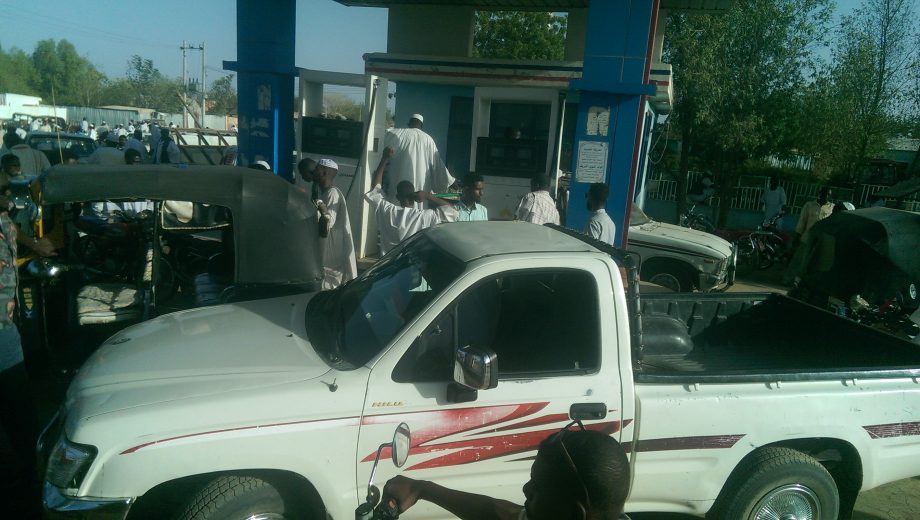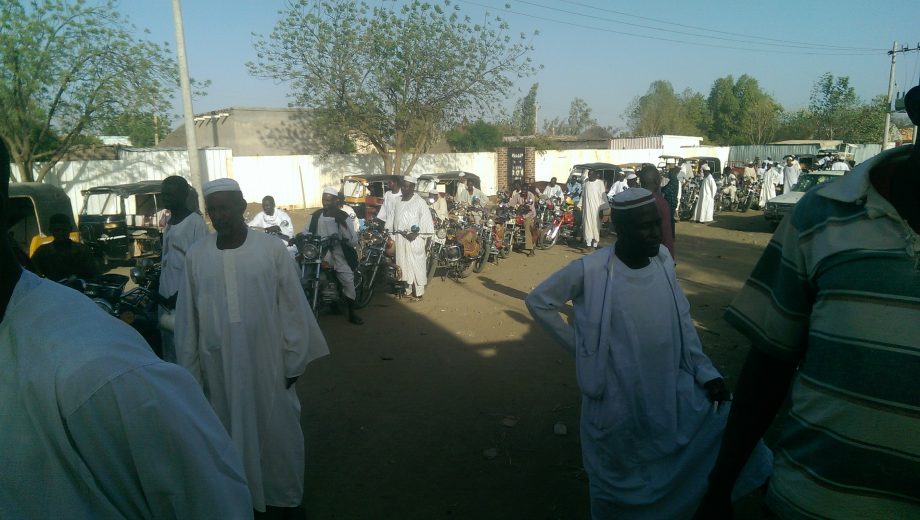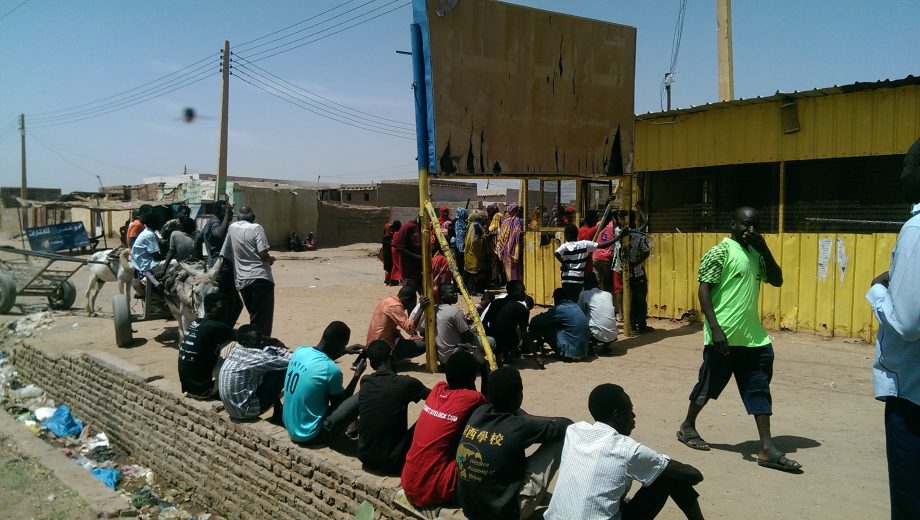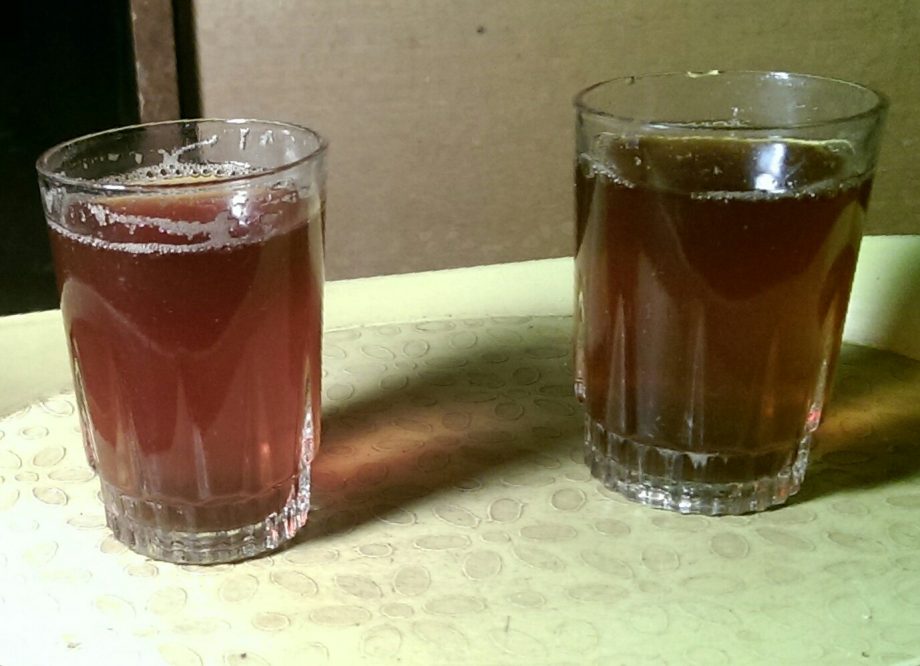Tea Without Sugar as a Remedy Against Covid-19?
Impressions from Al-Mafaza, Eastern Sudan
Since the first corona case has been announced in Khartoum on 13 March 2020, people have been fairly alarmed. Everybody fears contracting the virus, my concern was a bit different though. Especially when there was a rumor that the Ministry of Education might decide to shut down the schools until further notice. I am a teacher at primary school. Alongside my salary I have delivered private lessons in the evening to make ends meet. Yes, the virus is deadly but not being able to go to work and earn your living is deadlier.
The next day, 14 March 2020, I went to Al-Shaabi-Khartoum District to deliver a private lesson (tutoring) which is the main source of income for most, if not all, school teachers. Due to the separation of South Sudan in 2010 with 75% of the oil fields, the inflation rate has skyrocketed. This resulted in a huge instability of the prices in the market on a daily basis. And even if the prices are stable, a Sudanese teacher would not be able to live on his/her salary as teachers here are grossly underpaid.
The respective family and I spent about thirty minutes talking about the outbreak, particularly the new case in Khartoum and how infectious the virus itself is. The grandmother of the kids I teach whispered to me, ‘The man who passed away from the first corona case is a relative, but we didn’t go to the funeral, that is risky isn’t it?’ ‘That is a wise decision,’ I answered.
The mother of the kids told me that she was thinking about not sending the kids to school any more even if they were going to repeat the year. In the evening of 14 March 2020, the schools did officially shut down for a month to slow down the spread of the virus.
I spent about two days reflecting how to earn my living with no schooling or tutoring. Luckily on Monday 16 March two parents approached me by phone telling me that they would like to continue their lessons as normal. I was full of joy that I could finally make some money and could travel to my cousin’s wedding which would take place on 27 March.
Two days before the scheduled journey to my hometown, where the wedding would take place, the authorities decided to impose a partial curfew upon the capital, Khartoum was beginning Tuesday 24 March from 6 pm to 6 am and a travel ban of the buses followed on the 26th. Fortunately, I managed to make enough money for travelling and attending the wedding, hoping that the travel ban would be lifted soon so that I would be able to come back to Khartoum. On Tuesday 23rd when the night curfew was imposed my father called to check on me and asked me to bring him some masks as they were not available in the area. That evening I went to buy the normal surgical masks but could not find any. The only type of masks available was N95 which were pretty expensive, 360 Sudanese pound (about 3 dollars). That is almost my daily income. I bought only one piece for my father and decided to look again for the normal ones for myself as they would be less expensive – even though their price was 10 times higher than usually (from 5 SDG a piece to 50 SDG). I eventually ended up going back home without finding those ones either.
I set off for Al-Mafaza (my hometown) on 25 March. Although I started earlier than I planned – to avoid troubles – I discovered upon my arrival at the station that there were no buses. We had to travel by lorry, which was very uncomfortable. Forty of us crammed into the lorry. I was a bit concerned then that I might contract the disease in this crowded place and infect all my family and the people at the wedding. Only three of the people in the lorry were wearing masks: Two young men and a girl. At that moment I thought of putting on the mask I bought for my father but then decided not to do so in order to keep it clean.
Under normal conditions travelling in a van like the one I was using is completely forbidden and one could pay a hefty fine if one is caught carrying passengers in a van, but since that day was exceptional as everybody was trying to evade being trapped in the city, the traffic policemen of the highway unprecedentedly made sure that we had a safe and quick passage at the inspection points without questioning the driver whose license could have been taken away under normal conditions.
After a journey of nine hours we arrived in Al-Mafaza, my hometown. Once I climbed down the lorry, I immediately noticed that nobody worried about corona and there was no sign of social-distancing. Normal gatherings, hand shaking and hugging were all exercised as usual. After all, people had to line up for gas at the gas stations as well as bread at the bakeries.


Pictures 1 & 2: Al-Mafaza Gas Station on April 3, 2020. Copyright: Elnazir Mustafa.

Picture 3: Queues for Bread on April 18, 2020. Copyright: Elnazir Mustafa.
Apart from the restaurants and the tea-ladies who were ordered to close by the authorities, everything in the market place was as usual. For those who are not familiar with the term tea ladies, they are those girls and women who sell tea on roadsides, in parks and in the local markets to support their families. Most of these ladies fled from the wars in Darfur and Kordofan.
As far as religious ceremonies were concerned, the people still gathered to perform their prayers although the authorities discouraged such behaviour, especially the Friday prayer.
After some rest at home, I went right away to the wedding place where a lot of people gathered waiting for the henna to be put for the groom. Some university students there asked me about the situation in Khartoum and I answered them that some people have been tested positive and that the city was closing down. Their response to me was that the government simply made up those cases trying to get some hard currency (help) from the NGOs like World Health Organization (WHO). ‘There is no corona in Sudan because the virus can’t live in such a high temperature,’ added one of them. I did not argue with them as I also heard such opinions in Khartoum as well.
On 27 March, at three o’clock in the morning to be specific, while we were preparing the food for the wedding as hundreds of people were expected, my uncle came with a message in his phone asking us about its credibility. The message said that a newborn in Kassala State in Sudan prophesized that the cure of corona is tea without sugar. My answer to him was that if that is true, most of the Europeans would not get infected as most of them normally drink tea without sugar. To my surprise when I went back home I found that my mother had woken up my sister to drink the new treatment (tea without sugar). I went back again to the wedding place and found that all the people were discussing and making phone calls to the religious men to ask about the credibility of the incident. In fact, most of the women believed it. It did not stop there. The next day we heard that the cure of corona is Acacia Nilotica pods. People normally use them against the flu and they sometimes help. They said if one uses it in water to wash one’s body, one would be immune to the virus.

Traditional Sudanese cups of tea. Copyright: Elnazir Mustafa.
To cut a long story short most of the elderly people were extremely alarmed and took the virus seriously. But the fact remains that despite the efforts the authorities exerted to raise the awareness of the community about the severity of the risk they were facing, they could not afford social-distancing or staying at home as the majority of them are either retailers or daily laborers, jobs which involve contact with the public. The tea-ladies for instance who were ordered to stop working could not afford staying at home without work, for more than a week. They all finally gathered in front of the court of law in Al-Hawwata locality (Al-Mafaza town is part of it and all the high ranking officials live there) making a great commotion in front of the judge. They asked for a solution to their case or they would start working the day after. The authorities had earlier promised to give every household 10,000 SDG and a sack of sorghum (around $100) per month until the outbreak is over, but they simply did not keep their promise. At the end they decided to give each of the protesters a sack of sorghum.
The good news is that no one in this area has tested positive to corona yet. This makes it a lot safer than the capital Khartoum where the travel ban measures have now been tightened and the partial curfew has become a complete lockdown.
Submitted April 20, 2020
Elnazir Mustafa holds a BA from the University of Khartoum, Faculty of Arts, and graduated from the Culture and Environment in Africa MA program at the University of Cologne in 2016. He now works as a teacher at Smart International Schools and Kindergardens. He was born in Al-Gadarif, and today lives in Khartoum (Sudan).
The author can be contacted via zarmaize@gmail.com































